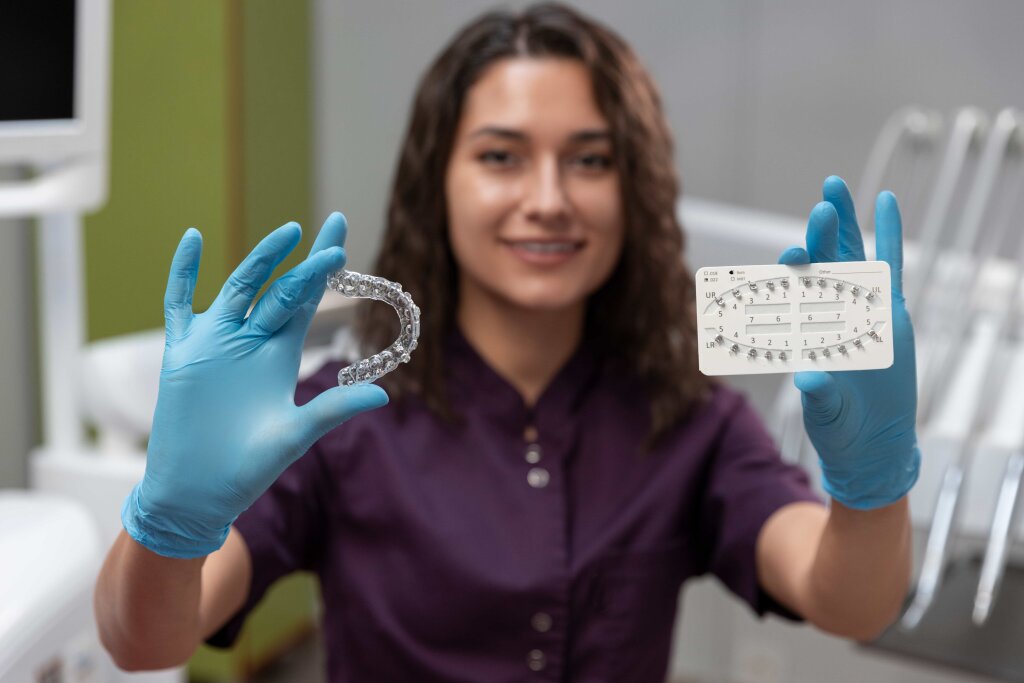Dental implant treatment is a modern dentistry method that offers a permanent and aesthetic solution for missing teeth. This treatment helps patients regain both their oral health and self-confidence. However, the success of dental implants depends on many factors. The factors that increase the success rate in implant treatment include the patient’s overall health condition, the techniques used, and post-treatment care.
Key Factors That Determine Success in Implant Treatment
Implant treatment generally has a high success rate of about 95%. However, several factors can influence this success. Below are the main factors that increase the success rate of implant treatment.
Patient’s General Health Condition
The success of implant treatment largely depends on the patient’s overall health. Patients with chronic health conditions like diabetes, heart disease, or weakened immune systems should inform their dentist before treatment. Additionally, smoking can slow the healing process and hinder the successful integration of the implant with the bone. Quitting or minimizing smoking can significantly improve the success rate.
Health of the Jawbone
One of the essential elements of implant treatment is the quality and quantity of the jawbone where the implant will be placed. Patients with insufficient jawbone may struggle with successful implant placement and bone integration (osseointegration). Therefore, having healthy and strong jawbone is crucial for ensuring the longevity and success of the implant. In cases of insufficient bone, additional procedures like bone grafting or sinus lifting may be necessary.
The Quality of the Implant Material
The quality of the material used for the implant plays a crucial role in the success of the treatment. Titanium, due to its biocompatible nature, is the most commonly used implant material. Titanium implants integrate well with the jawbone, providing a strong and permanent structure. Zirconium implants may also be preferred for patients with aesthetic concerns. The quality of the implant directly affects both the aesthetic and functional success of the treatment.
Dentist’s Expertise
Implant treatment is a field of dentistry that requires expertise and experience. Therefore, the knowledge and experience of the dentist performing the treatment is one of the factors that determine the long-term success of the implant. An expert dentist ensures the correct placement of the implant, carefully manages the treatment process, and minimizes complications.
Implant Placement Technique
The surgical techniques used in implant treatment also impact the success rate. Correct placement of the implant at the right angle and depth is critical to ensure proper integration with the bone. Improper placement can lead to bone loss, infection, and implant failure. Therefore, using advanced technology and accurate surgical techniques during implant placement increases the chances of success.
Gum Health and Oral Hygiene
Gum health plays a significant role in the success of implant treatment. Patients with gum disease (periodontal disease) are at a higher risk of infection around the implant. Therefore, it’s essential to check and treat gum health before implant treatment. Post-treatment, maintaining regular oral hygiene is also vital to ensure the longevity of the implant.
Post-Implant Success Factors
After successful implant placement, several factors need attention to ensure the long-term success of the treatment. Post-treatment care helps the implant integrate fully with the bone and be used without problems for years.
Regular Oral Care and Check-ups
Regular oral care is one of the most important factors that increase the success rate after implant treatment. Brushing your teeth twice a day, using dental floss, and maintaining oral hygiene help keep the tissues around the implant healthy. Additionally, regularly visiting your dentist to check the condition of your implant helps detect potential issues early.
Limiting Smoking
Smoking is one of the factors that negatively affect the success of implant treatment. Smoking slows the healing process of oral tissues and prevents the implant from fully integrating with the bone. Patients who smoke have a higher risk of implant failure. Therefore, minimizing or completely quitting smoking during and after implant treatment is essential.
Nutrition and Lifestyle
A balanced and healthy diet supports the healing process after implant treatment. Avoiding hard foods prevents pressure on the implant, which could disrupt the integration with the bone. Additionally, excessive alcohol consumption can affect the success of the implant, so adopting a healthy lifestyle is important.
Stress and Teeth Grinding (Bruxism)
Stress-related teeth grinding (bruxism) is an important factor to consider in implant treatment. Teeth grinding can put excessive pressure on the implant, preventing proper integration or damaging the implant. In such cases, consulting your dentist for solutions like a night guard can help reduce the effects of teeth grinding.
There are many factors that increase the success rate of implant treatment. The patient’s overall health condition, the quality of the jawbone, the implant material used, and the dentist’s expertise are crucial in ensuring the success of the treatment. Additionally, maintaining regular care and oral hygiene after treatment ensures the longevity of the implant. By paying attention to these factors, you can achieve excellent results both aesthetically and functionally in implant treatment.






